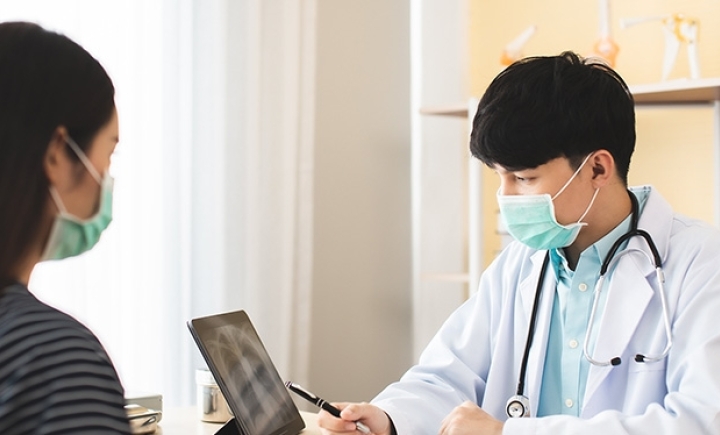Causes of colorectal cancer | Polyps | Colonoscopy

The Second Deadliest Cancer: Colorectal Cancer
Is colorectal cancer common in Hong Kong?
According to the Hong Kong Cancer Registry of the Hospital Authority in 2009, colorectal cancer ranks second among all cancers in both incidence and mortality rates.
Colorectal cancer mainly develops from intestinal polyps. The transformation process may take about 10 years and often shows no symptoms. Early detection and removal of these polyps can significantly reduce the risk of developing cancer.
It is therefore recommended that people aged 50 or above undergo colonoscopy regularly. High-risk individuals—such as those with close family members diagnosed with colorectal cancer—should consider starting screening earlier (at age 40 or 10 years before the relative was diagnosed) and repeat it more frequently for prevention.
What is colorectal cancer?
According to the Department of Health, colorectal cancer is a disease caused by abnormal growth of cells in the colon or rectum. These cancerous cells continue to grow and can spread to other parts of the body.
Colorectal cancer is one of the most common cancers in Hong Kong. In men, it is the second most frequently diagnosed cancer. The risk increases with age, particularly among people over 50.
Who is at higher risk of developing colorectal cancer?
High-risk factors include:
-
A diet high in animal fat and low in fiber (such as insufficient fruits and vegetables)
-
Lack of physical activity
-
Family history of colorectal cancer or hereditary bowel diseases
-
Chronic inflammation of the colon (ulcerative colitis) or the presence of polyps
What is a colonoscopy?
A lower gastrointestinal endoscopy, commonly known as a colonoscopy, uses a flexible tube about 1.3 cm in diameter with a camera at its tip to examine the lower digestive tract.
This includes the end of the ileum, cecum, sections of the colon, rectum, and anus. The test checks for tumors, polyps, inflammation, or bleeding. If abnormalities are found, the doctor can take tissue samples for laboratory testing, perform hemostatic treatment, or remove polyps.
Because most colorectal tumors start as polyps, early detection and removal through colonoscopy can reduce cancer risk. Hence, colonoscopy is an effective preventive method for colorectal cancer.
Who should have a colonoscopy?
Colonoscopy is recommended for individuals who:
-
Are over 50 years old
-
Have family members with bowel cancer
-
Have had intestinal polyps
-
Experience chronic diarrhea
-
Notice blood in their stool
-
Have changes in bowel habits (such as constipation or diarrhea)
How should I prepare for a colonoscopy?
Before the procedure
-
The bowel must be thoroughly cleansed before the examination so the doctor can clearly observe the intestinal lining. You must take laxatives as prescribed.
-
Inform your healthcare provider if you have diabetes, high blood pressure, heart disease, kidney disease, are on a low-sodium diet, take long-term medication, or are pregnant/breastfeeding.
-
Provide details of all medications taken, especially blood-thinning drugs or any history of allergies.
-
Stop eating high-fiber foods three days before the procedure.
-
Consume only clear fluids the day before the test.
-
You may drink clear, fiber-free liquids up to four hours before the procedure.
-
Arrive 30 minutes early.
-
Bring a friend or family member along (do not drive yourself home afterward).
-
If combined with an upper endoscopy, you must fast (no food or drink) for six hours beforehand.
-
Medical staff will explain the procedure and its risks before you sign a consent form.
During the procedure
-
Remove all metal objects, jewelry, or dentures.
-
Lie on your side with knees drawn up toward your chest.
-
You will receive an intravenous sedative, so the procedure will take place while you are asleep.
-
The process usually takes 30–60 minutes, depending on the complexity of the case.
After the procedure
-
You will rest in a recovery area until the sedative wears off.
-
Because the medication may still affect you, it is safest to have a companion accompany you home.
-
Avoid eating for 1–2 hours afterward.
-
You may experience mild abdominal bloating or discomfort.
-
If you experience bloody stool or severe abdominal pain, go to the nearest emergency department immediately.




